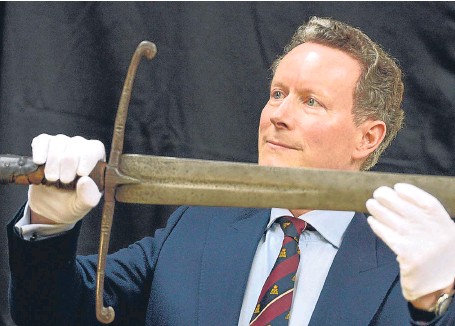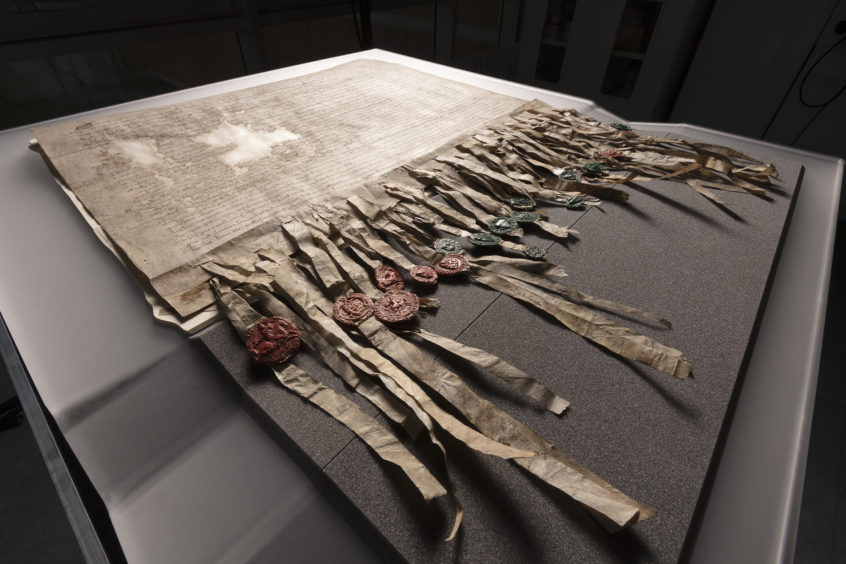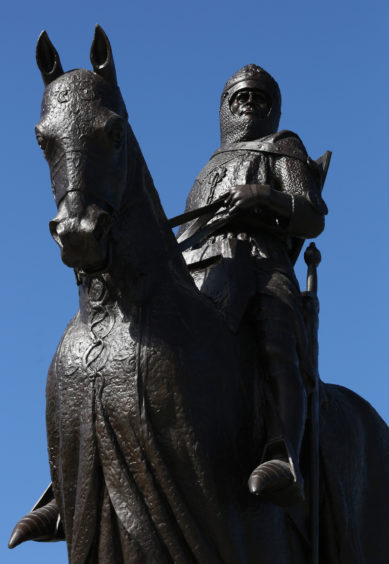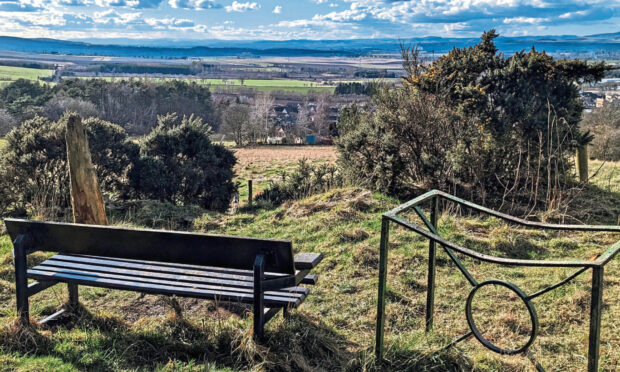In the 700 years since the Declaration of Arbroath was written and sent from the parliament held in the town’s abbey to Pope John XXII at Avignon, its sentiments have fascinated people from all walks of life.
However, for Fife-based Lord Bruce, a lineal descendant of medieval warrior-king Robert the Bruce, it has a special significance.
Mr Bruce says the Declaration is “one of Europe’s most important state documents of the medieval period” the influence of which can be traced over subsequent centuries.
He said: “It is a fascinating example of medieval statecraft, drawing on analogy, phraseology and evidence.
“It proves the power of rhetoric, recalling the speeches made in classical Rome and was conceived primarily as a diplomatic weapon.
“It is a work of profound scholarship which also weaves in a wide sweep of European history to provide an unarguable case for self-determination.”
Mr Bruce says the deposition clause in the document, requiring a monarch to rule in the best interests of the country’s principal stakeholders who retain the sanction to depose him, sets the Declaration apart from other documents of the time.
“It is perhaps the first attempt in European constitutional law to define civic humanism, where the right to rule is a conditional grant of the people.” He added.
The Declaration was written six years after King Robert had won a resounding victory over England’s King Edward II at Bannockburn, however his reign remained as insecure as it had ever been.
A plot to depose him and put Edward Baliol on the Scottish throne had been uncovered and the protagonists arrested by August 1320.
It would be four years before the Papacy recognised Robert as king and although a peace treaty was secured with England in 1328, King Robert did not live to see the full success of his diplomatic initiative.
Bruce died just nine days before the Papacy published an order allowing Scottish monarchs to be anointed at their coronation 1329.
Speaking of the family connection to the Declaration of Arbroath, Lord Bruce says his ancestor was a “deeply pious and conscionable” man who deeply regretted the violence of his reign and the family remains keen to promote The Bruce as a statesman of conscience as much as a warrior.
He said: “In contrast to the acts of military courage which continuously punctuate his reign, the Declaration of Arbroath is an example of highly polished diplomacy and this is a profession the family has followed successfully in subsequent generations.
“For example, it was a Bruce who negotiated the succession of King James VI of Scotland as King of England following the death of Elizabeth in 1603, while another Bruce negotiated the first North American free trade treaty on behalf of Canada in Washington DC in 1854.”












